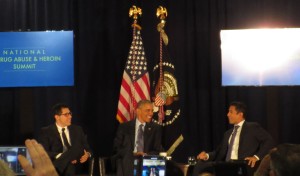President Obama, speaking in Atlanta at a summit on drug abuse, said Tuesday that government must spend more money on treatment of people addicted to opioid drugs.
The nation’s surging opioid epidemic, he said, “is costing lives and devastating communities.”
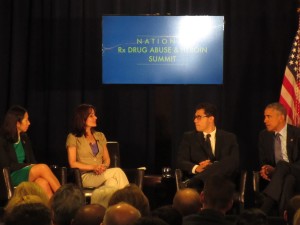
Opioid drugs include heroin as well as prescription painkillers such as oxycodone and hydrocodone.
The prescription opioid and heroin overdose epidemic in the United States killed more than 28,000 people in 2014, more than in any other year on record. Overdoses have quadrupled since 2000.
Among steps to fight drug addiction, the White House has proposed a $1.1 billion commitment of new federal funds to expand treatment for prescription opioid abuse and heroin use.
Speaking during a panel discussion at the National Rx Drug Abuse & Heroin Summit, Obama pointed out that more people are now killed from opioid overdoses than traffic accidents.
The problem affects all age groups and rural, urban and suburban areas, he said. Rural areas, though, are especially hard hit, he added.
Obama noted that the administration has allocated about $94 million in new funds to 271 community health centers (including two in Georgia) to expand treatment for drug addiction.
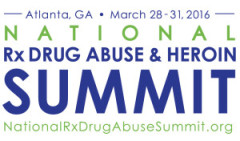
“We’re putting enormous resources’’ into stopping illegal drugs from entering the country, Obama said. But he added, “Treatment is greatly underfunded.”
Georgia is among 14 states that have seen significant increases in the rate of drug overdose deaths, the CDC says. In 2014, 1,206 people died from such overdoses in the state, up from 1,098 the year before, an almost 10 percent increase.
Heroin use has skyrocketed in Atlanta and its northern suburbs. In 2010, four people died from heroin overdoses in Fulton County (which contains most of the city of Atlanta), while in 2015, 82 people died.
Obama was joined on the panel by two people recovering from addiction – Justin Luke Riley of Denver, 28, who runs Young People in Recovery; and Crystal Oertle, 35, from rural Ohio, a mother of two.
Oertle said she progressed from taking painkillers to buying heroin, using the drug in her home.
Obama said a goal of the new funding is to “make sure people like Crystal get the treatment when they need it.”
Needle exchange programs
The president noted that in his youth, he “was not as responsible as I am today” when it comes to substance use.
In a book he wrote before becoming president, Obama recalled making some bad choices as a youth, including experimenting with marijuana and cocaine.
“I was lucky,’’ he said Tuesday. “For whatever reason, addiction didn’t get its claws in me,’’ except for a cigarette smoking habit that he battled.
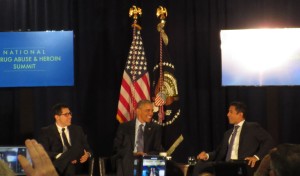
Another panelist, Dr. Leana Wen, Baltimore’s health commissioner, said, “We need to recognize addiction as a disease.’’ Wen said a needle exchange program in Baltimore has been successful in informing drug users of treatment options and also lowering the HIV infection rates.
A proposal to promote needle exchanges in Georgia was blocked in the state General Assembly this year.
Among other White House initiatives announced Tuesday:
** The Department of Health and Human Services is issuing a proposed rule to increase the current patient limit for qualified physicians who prescribe buprenorphine to treat opioid use disorders from 100 to 200 patients, with the goal of expanding access to this treatment.
** The Substance Abuse and Mental Health Services Administration is releasing a new $11 million funding opportunity to states to purchase and distribute the opioid overdose reversal drug, naloxone, and to train first responders and others on its use along with other overdose prevention strategies.
** HHS is finalizing a rule to strengthen access to mental health and substance use services for people enrolled in Medicaid and Children’s Health Insurance Program (known as PeachCare in Georgia) plans by requiring that these benefits be offered at parity, meaning that they be comparable to medical and surgical benefits.
USA Today also reported a $7 million Department of Justice anti-heroin grant program, which would help law enforcement agencies in hard-hit states investigate the illicit distribution and trafficking of prescription painkillers and heroin; and HHS issuing guidance for the use of federal funds to start or expand needle exchange programs.
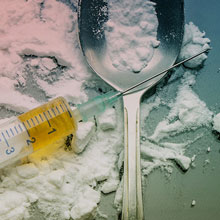
Obama said Tuesday that his administration will push insurers to give people with mental health or substance use problems the same level of treatment coverage as people with other conditions. Under the Affordable Care Act, Obama said, “We’ve got to let insurers know we’re serious about this.”
The face of opioid use, meanwhile, continues to change. The New York Times recently reported the growth in the use of Fentanyl, a powerful synthetic painkiller that has been laced into heroin but is increasingly being sold by itself. In some areas of New England, fentanyl is now killing more people than heroin.
In other recent actions in fighting the epidemic, the CDC issued guidelines for doctors who are prescribing opioids. And along with Obama’s visit, more than 60 medical schools are set to announce that, beginning this fall, they will require student training on those guidelines.
Obama also mentioned that states, by expanding Medicaid under the Affordable Care Act, would give low-income drug users more access to treatment.
Georgia has declined Medicaid expansion since its inception, with state officials saying it would be too costly for Georgia taxpayers. Meanwhile, 31 states have agreed to expand the program, the latest one being Louisiana.
Expanding the state’s Medicaid program could bring tens of thousands of low-income Georgia into treatment for mental health and substance use problems, federal officials said Monday in a report.
The report said 159,000 uninsured Georgians with mental illness or a substance use disorder had incomes that would qualify them for expanded Medicaid coverage in 2014 under the Affordable Care Act.
Neil Campbell of the Georgia Council on Substance Abuse, who attended the summit panel, said Tuesday that Obama showed that he had a comprehensive grasp of the problem of addiction.
“He not only detailed the problem as affecting all communities – black, white, rural, urban, affluent, poor – but he offered real solutions by describing a wide-ranging public health approach, beginning with prevention, early intervention, and including treatment and recovery,’’ Campbell said.

